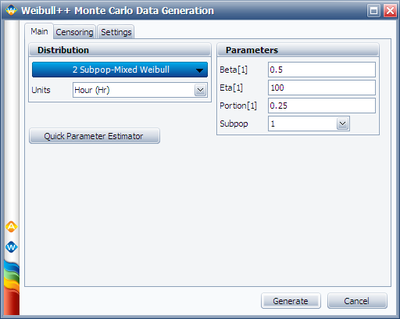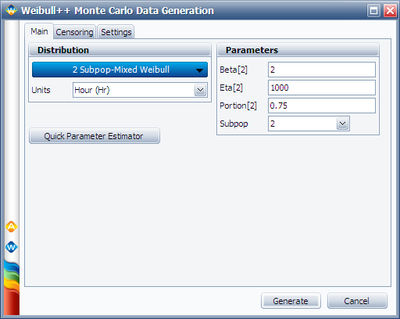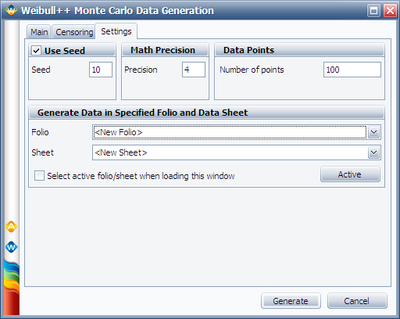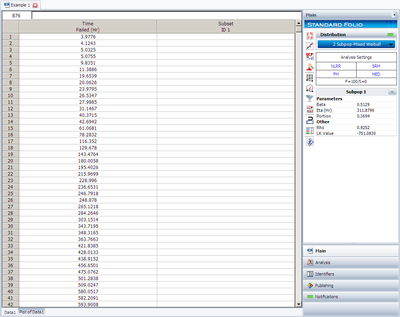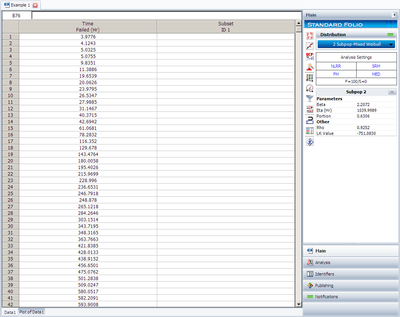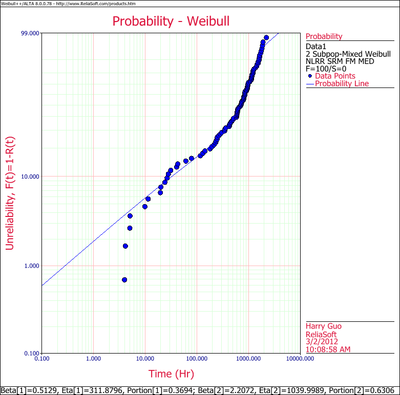2-Subpopulation Mixed Weibull Example: Difference between revisions
Chris Kahn (talk | contribs) No edit summary |
Chris Kahn (talk | contribs) No edit summary |
||
| Line 4: | Line 4: | ||
|} | |} | ||
We will illustrate mixed Weibull analysis using a set of simulated data. To repeat this example, first use the Monte Carlo utility to generate two sub-populations of data using a | We will illustrate mixed Weibull analysis using a set of simulated data. To repeat this example, first use the Monte Carlo utility to generate two sub-populations of data using a 2-parameter Weibull distribution. Then analyze the data in a standard folio. The required steps, inputs and results are described below. | ||
In the Monte Carlo window, enter the values and select the options shown below for subpopulation 1. | In the Monte Carlo window, enter the values and select the options shown below for subpopulation 1. | ||
Revision as of 20:57, 3 May 2012
We will illustrate mixed Weibull analysis using a set of simulated data. To repeat this example, first use the Monte Carlo utility to generate two sub-populations of data using a 2-parameter Weibull distribution. Then analyze the data in a standard folio. The required steps, inputs and results are described below.
In the Monte Carlo window, enter the values and select the options shown below for subpopulation 1.
Switch to subpopulation 2 and make the selection shown below.
The simulation settings are:
Click Generate. After the data has been generated, choose the 2 Subpop-Mixed Weibull distribution in the standard folio and click the Calculate icon.
The results for subpopulation 1 are shown next.
The results for subpopulation 2 are shown next.
The Weibull probability plot for this data is shown next.

